All Stories
-
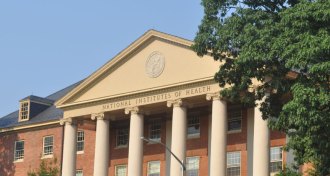 Science & Society
Science & SocietyNew spending bill mostly boosts money for science research
Here’s a quick look at how science agencies fared in the newly passed spending package.
-
 Physics
PhysicsA single atom can gauge teensy electromagnetic forces
The force of scattering particles of light was measured in zeptonewtons, a billionth of a trillionth of a newton.
-
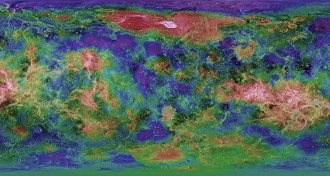 Planetary Science
Planetary ScienceVenus may be home to a new kind of tectonics
Venus’ surface seems to be divided into jostling blocks of crust, defying conventional wisdom about how the surfaces of rocky planets work.
-
 Science & Society
Science & SocietyWhy science still can’t pinpoint a mass shooter in the making
Arguments flare over mass public shootings that remain scientifically mysterious.
By Bruce Bower -
 Ecosystems
Ecosystems50 years ago, invasive species traveled the Suez Canal
Hundreds of Red Sea species used the Suez Canal to migrate to the Mediterranean Sea, leading to the decline of some native species.
By Kyle Plantz -
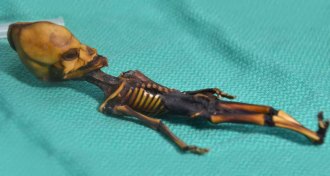 Genetics
GeneticsAtacama mummy’s deformities were unduly sensationalized
A malformed human mummy known as Ata has been sensationalized as alien. A DNA analysis helps overturn that misconception.
By Dan Garisto -
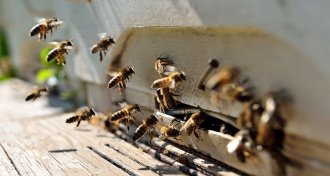 Environment
EnvironmentHow bees defend against some controversial insecticides
Some bees have enzymes that allow them to resist toxic compounds in some neonicotinoid pesticides.
By Dan Garisto -
 Life
LifeEarwigs take origami to extremes to fold their wings
Stretchy joints let earwig wings flip quickly between folded and unfurled.
-
 Science & Society
Science & SocietyWhy it’s great to have a geologist in the house
Editor in Chief Nancy Shute enthuses about learning how ancient plans may have helped make Earth muddy.
By Nancy Shute -
 Anthropology
AnthropologyReaders ponder children’s pretend play, planetary dust storms and more
Readers had questions about children’s fantasy play, lasers creating 3-D images and dust storms on Mars.
-
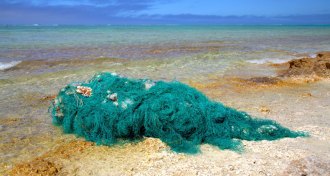 Environment
EnvironmentThe great Pacific garbage patch may be 16 times as massive as we thought
The giant garbage patch between Hawaii and California weighs at least 79,000 tons, a new estimate suggests.
-
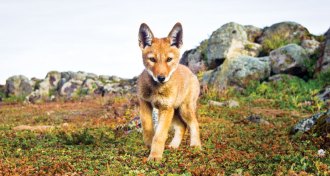 Animals
AnimalsHow oral vaccines could save Ethiopian wolves from extinction
A mass oral vaccination program in Ethiopian wolves could pave the way for other endangered species and help humans, too.